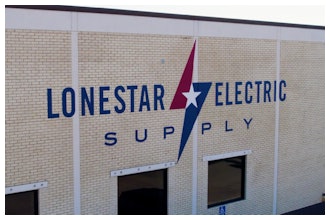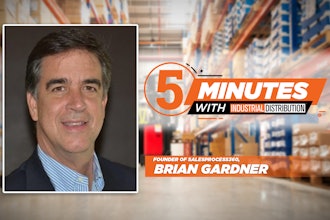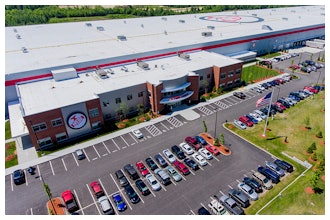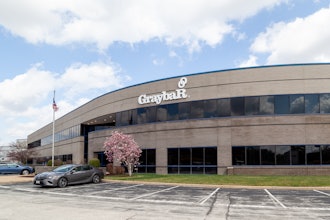According to research at Reilly Sales Training, more than 60 percent of salespeople will cut their price if the customer requests it, even if the customer acknowledges that the solution is better and saves them time or money. Buyers know this. Experience has taught buyers to apply pressure. When buyers give an objection, salespeople cave in. Why wouldn’t a buyer ask for a discount?
Here are seven reasons why salespeople cut price and some ideas on what to do about it.
No. 1: Because they can
This is one of the strongest arguments against salespeople having pricing authority — because most will cut price when pressed by the customer. In a recent seminar, a group of managers was discussing their discounting levels. One manager explained that their salespeople could discount up to 50 percent off list price without management approval. I then asked the manager, “What is the most common discount percentage your salespeople give?” He shrugged and said “50 percent.” Salespeople should not have pricing authority. Pricing directly impacts profitability. Therefore, pricing is strategic and management alone should have authority.
No. 2: Mixed management signals
When management tells the salesperson to get the order at any price — not to lose it — they are giving the salesperson permission to discount as heavily as needed. When management stresses volume over profitability, they are giving tacit permission to cut the price. To be a value-added organization, management must have the courage to hold the line on price. Salespeople are guided by the management team's action more than their words.
No. 3: Lack of skills
When salespeople lack the training or the skills to hold the line on prices, they will be out-negotiated by customers. Whoever is better prepared for the negotiation will emerge victorious. Buyers will try to commoditize your solution and steer the conversation toward price. It’s difficult to sell value if you're only talking price. Salespeople must preemptively take control of the sales conversation and guide it down a path of value. When the buyer focuses too heavily on price, acknowledge price, but change the conversation to total cost or value.
No. 4: Lack of conviction
If salespeople do not believe that their product is better than the competition, they will not present a compelling argument. If salespeople do not understand the value in their proposition, they will fail to convince the customer of its worth. Our latest research shows that only 36 percent of salespeople believe their solution offers the customer a compelling reason to change. Furthermore, only 44 percent of salespeople clearly understand their company’s value proposition. When presenting your value-added solution, focus on the impact of your solution, not the utility. Utility is what your product does and impact is how your solution affects the buyer. Impact is more compelling that utility. To clearly identify your value proposition, ask yourself, “What does the buyer stand to gain when they experience our complete value-added solution?”
No. 5: Fear
Those who fear losing the sale and succumb to this fear will cut the price. Fear is the most powerful pressure point. Buyers know that salespeople fear losing the business. Buyers make salespeople feel this pressure by saying, “I can get this cheaper online.” Or, “This price seems high. I will have to send this out to bid.” In any negotiation, whoever feels the most pressure, will make the most concessions. When salespeople feel more pressure, they discount. When buyers feel more pressure, price is less of an issue. If the buyer is in a hurry to buy something, price is less of an issue. If you are the only supplier that has the product they need, price is less of an issue. If the buyer prefers your company, then price is less of an issue. Experienced buyers do a better job of concealing these pressure points, but they still are present. The next time a buyer requests a discount, ask yourself, “What pressure is the buyer experiencing to purchase our solution?”
No. 6: Guilt
Some salespeople feel guilty charging higher prices than the competition charges. These salespeople may not see themselves paying that much for a product and feel bad charging customers those prices. Guilt happens when salespeople are too close to a customer. This group of salespeople hasn’t created enough professional distance to have the tough conversations.
No. 7: Bad attitude
Attitude drives behavior. If salespeople embrace a negative attitude about price, they're more likely to cut their price. Some salespeople will tell themselves, “Price is the only thing that sells in our industry.” Or, “I sell a commodity and we have to match the competition.” This negative self-talk influences selling behavior. Flush these thoughts from your mind. Embrace a positive attitude. Emphasize the unique aspects of your solution and present the impact on the buyer’s business.
Salespeople are paid to sell. Anyone can cut the price; that takes neither talent or skill, just a sharp pencil and a calculator. The next time a buyer gives you a price objection, hold the line. Use the objection as an opportunity to sell your value added. Give the buyer three reasons to choose your alternative and stand firm. Salespeople discount for multiple reasons. But buyers will pay more for greater value. Value-added salespeople work hard to hold the line on prices. Buyers are prepared to ask for a cheaper price. Be prepared to respond.
Paul Reilly is president of Reilly Sales Training, a St. Louis-based, privately-owned company that specializes in training sales professionals, sales managers and service professionals. Call Paul at 636-778-0175 or email [email protected].






















